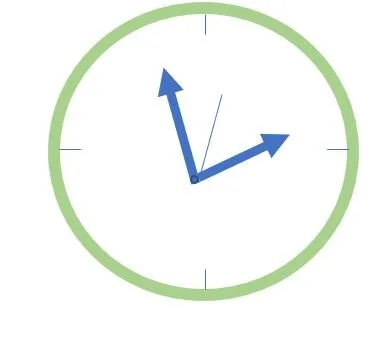The advice you need this new year, dear fundraiser
Dear Diary,
We have crossed into a new decade and a new year. But let’s be honest, as we create new goals and aspire for better, we are still the same people in this nonprofit space. We are still trying to navigate our circumstances so we can drive our mission, engage donors, raise funding, and more – the overall goals never end. The actual change that comes with a new year is renewed hope that the new year will be better than the last.
So today, with a special guest, the Director of Development at Lee Carlson Center for Mental Health & Well-Being, Kate King, we are going to share some experiences and advice that we believe you need to remember and internalize as you take on the new year.
It’s ok not to know
I never realized the power of saying “I don’t know” until I saw and heard someone in a leadership position answer a question with this response. She answered honestly and left herself vulnerable but also very respected. She also followed up with, “let me find out and I’ll get back to you on that.”
In that moment, she earned my respect because she did not have anything to prove, rather she wanted to make sure her team had the correct information. It was a confident response, a statement that she would rely on whenever necessary.
I believe many of us in the nonprofit space feel like we have to know the answer to everything, or insist on knowing everything without asking questions or thinking about the consequences of assuming answers. When realistically, it is ok not to know.
As humans we rely on knowing, and in a field where you are pulled in multiple directions, knowing is important. But can it be harmful, misleading, and lead to imposter syndrome for newcomers? I would like to say yes. When everyone around you seems to know everything, and it is your first three months in the office, self-doubt can be difficult to shake off.
Kate: A professor once told me, "you don't have to know everything -- you just have to know where to find it." I came to the nonprofit world with about 3 years of on-the-job experience and a Masters in Museum Studies/Nonprofit Management from Johns Hopkins. Despite all this, I quickly encountered so many issues that I had no idea how to tackle or even where to start! Luckily, the nonprofit world is diverse and I've quickly discovered that no matter what my question, there is someone out there who knows how to answer. Facebook groups, Twitter hashtags, and blogs have been invaluable in my career.
I worked at a nonprofit where we were one of three local organizations working with elders who play sports. One of our partner organizations experienced the unexpected death of a player on their tennis court. Our leadership team decided we needed a policy on how to deal with an unexpected death onsite -- but where does one start with that!? I went to the Nonprofit Happy Hour Facebook group with my question and within minutes had responses from colleagues who even shared sample polices with our organization.
Your job is not your real life
Recently, I was given this amazing piece of advice that I feel compelled to share with the world: your job is not your real life, your real life is outside the office and consists of what is personal to you. Ladies and gentlemen, my life changed after that. That was when I realized that work-life balance could be attained. Your real life is where you find peace, love, acknowledgment, strength, happiness, and even sadness.
As we begin this new year, I hope you find your path to knowing the difference between your job and your real life – separating what is professional and personal.
Kate: I was someone who couldn't walk away. My organization needed me to succeed because I was the Director of Development. Before our annual event, I threw all I had into the event. I skipped meals and lived on coffee, candy, and soda. I ignored my body despite having autoimmune disease. I was hospitalized TWICE the week of our event. We raised more money that night than we ever had and I finally decided to take a break. I finally set a boundary that Saturday saying I wouldn't be able to work 13 hours on Monday, I would work my usual 8 hours. I was fired on Tuesday.
While this is an extreme example (and there were other toxic behaviors going on the whole year I was employed there), I learned some important lessons. YOU CAN'T POUR FROM AN EMPTY POT! I will say it again because this is important: You can't pour from an empty pot. This has become my mantra since I was fired that November afternoon. If you don't take time for you, you won't help anyone and your organization needs you in top form. I was not at my best that week and if it weren't for my stellar team, that event would not have been as successful. As hard as it might be, take a break. Go home. Your nonprofit will go on without you. Set boundaries early and hold those lines for your sake.
You are in the people business
So far, my journey in fundraising has taught me that many people forget that we are in the people business. We are in a world in which we are trying to raise support from people - motivated by their own experiences, egos, norms, passions and more; which then means that they are uncontrollable, with irregular variables, and no one person is the same. We forget that although studies and numbers don’t lie, people can and will; therefore, human understanding is important as you deal with humans internally at work and then externally as constituents/donors.
Calm the fundraising pressure because you are dealing with humans. Respect those you work with internally, and communicate with externally.
Kate: Every donor matters, and every dollar counts. This donor chose your organization, out of all the possible choices, for their precious gift. Treat each donation, no matter the amount, with the respect it deserves. That being said, sometimes donors might want to do something impossible with their gift that would be detrimental to the organization. Managing expectations is imperative. People have needs and desires and you'll need to make sure that your donor's desires are being met while respecting the needs of the organization. Be kind, be respectful, and be honest when it comes to discussing gifts.
During a capital campaign at a former organization, donors could write their name on pieces of paper and we would display them in our lobby. A little girl donated a dollar and the receptionist let the child write her name for display. Once the child left, the Executive Director scoffed saying the donation wasn't enough to count for the display. Unbeknownst to the Executive Director, the child's parents owned a rather large investment company that later sold in a multi-million dollar buy-out. Unfortunately for the organization, the lack of respect they showed for that little girl was noticed by her parents and the capital campaign lost out on a major gift.
---
Thank you, Kate, for sharing your experiences and amazing advice!
Until next time, February 15th!





